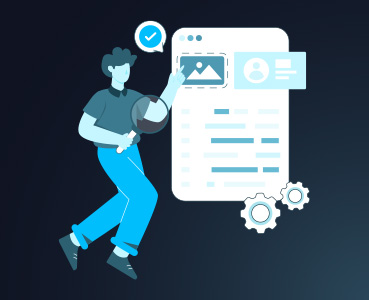In the world of app development, ensuring the quality and reliability of applications is paramount. Continuous Integration (CI) is a practice that helps teams detect and resolve issues early in the development process. Google Cloud provides a robust CI platform that allows developers to automate the testing of their applications, making it easier to deliver high-quality apps. In this blog post, we will explore how you can leverage Google Cloud CI to streamline your app testing and also discuss the benefits of the integration with pCloudy.
What is Google Cloud CI?
Google Cloud CI is a fully-managed continuous integration and delivery platform offered by Google Cloud. It allows developers to build, test, and deploy their applications seamlessly. By automating the integration and testing processes, Google Cloud CI helps teams catch bugs, ensure code stability, and accelerate the overall development cycle.
Brief Overview of Google Cloud CI Features
- Scalability: Google Cloud CI offers a scalable infrastructure that can handle the varying demands of your application testing. It can dynamically allocate resources to run tests in parallel, reducing the overall testing time and increasing developer productivity.
- Easy Setup: Getting started with Google Cloud CI is straightforward. You can easily connect your source code repository, define your build and test configurations, and set up triggers to initiate the testing process automatically. The intuitive user interface and documentation make it easy for both beginners and experienced developers to configure their CI workflows.
- Integration with Google Cloud Services: Google Cloud CI seamlessly integrates with other services provided by Google Cloud, such as Google Kubernetes Engine (GKE), Cloud Functions, and Cloud Storage. This integration enables you to deploy and test your applications directly on the cloud infrastructure, taking advantage of the scalability and reliability of Google Cloud.
- Test Parallelization: Google Cloud CI allows you to parallelize your tests across multiple machines, reducing the time required to run your test suite. By running tests in parallel, you can obtain faster feedback on the stability and quality of your application.
- Extensive Testing Framework Support: Google Cloud CI supports a wide range of testing frameworks, including popular choices like JUnit, pytest, and Mocha. Whether you are building a web application, mobile app, or API service, you can configure your CI workflow to accommodate your preferred testing frameworks and tools.
- Insights and Reporting: Google Cloud CI provides comprehensive reporting and insights about your test results. You can easily visualize the test outcomes, track historical trends, and analyze code coverage reports. These insights help you identify areas of improvement and make data-driven decisions to enhance the quality of your applications.
Integrating the power of pCloudy with Google Cloud CI
pCloudy is a comprehensive cloud-based testing platform that offers a wide range of testing capabilities for mobile, web, and IoT applications. With its vast device inventory and real-time testing capabilities, pCloudy enables developers and testers to conduct end-to-end app testing efficiently. Google Cloud CI offers a robust continuous integration and delivery platform that automates the build, test, and deployment processes. By integrating pCloudy with Google Cloud CI, you can leverage the strengths of both platforms and create a seamless testing workflow. Here’s how the integration benefits app testing:
- Device Farm Synchronization: The integration enables automatic synchronization of device farms between pCloudy and Google Cloud CI. You can select devices from pCloudy’s device inventory directly within your Google Cloud CI pipeline, simplifying device management and reducing setup time.
- Parallel Testing on Real Devices: With pCloudy’s parallel testing capabilities and Google Cloud CI’s scalability, you can execute tests on multiple real devices simultaneously. This significantly reduces testing time, allowing you to obtain faster feedback on your app’s functionality and quality.
- Automated Test Execution: Integration with pCloudy allows you to seamlessly execute automated test scripts on pCloudy’s devices through Google Cloud CI. This enables you to leverage your existing test automation frameworks and infrastructure while utilizing pCloudy’s device cloud, optimizing test coverage and increasing testing efficiency.
- Comprehensive Reporting and Analysis: The integration enables seamless access to pCloudy’s reporting and analytics within the Google Cloud CI interface. You can view detailed test reports, logs, screenshots, and performance metrics directly from your CI pipeline, facilitating quicker issue identification and resolution.
- Improved Collaboration: The integration promotes collaboration between developers, testers, and stakeholders. Test results and reports from pCloudy can be shared and accessed by team members through the Google Cloud CI interface, fostering effective communication and collaboration.
Conclusion
Integrating pCloudy, a powerful cloud testing platform, with Google Cloud CI can significantly accelerate app testing and improve the overall testing process. By leveraging pCloudy’s extensive device inventory, parallel testing capabilities, automated testing features, and comprehensive reporting, along with the scalability and automation provided by Google Cloud CI, you can optimize your app testing workflows and deliver high-quality applications faster. Take advantage of the pCloudy and Google Cloud CI integration to streamline your app testing process, enhance collaboration, and achieve shorter time-to-market while maintaining the highest level of app quality.





 November 27, 2024
November 27, 2024







